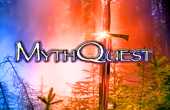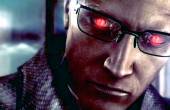CulturallyOpinionated
George is a Vanderbilt Divinity School gradate with an MA in Religious Studies focusing on mythological studies. His interests include mythology, video games, and Star Wars
Contributor II
- Plebian Penman
- Lurker
- Pssst
- Sharp-Eyed Citizen
- Article of the Month
- ?
- Articles
3 - Featured
3 - Comments
36
- Ext. Comments
19 - Processed
16 - Revisions
8
- Topics
6 - Topics Taken
0 - Notes
10
- Topics Proc.
8 - Topics Rev.
2
- Points
1247 - Rank
116 - Score
608
Latest Articles
Latest Topics
Are radio edits a necessary evil or detrimental to artistic integrity?Occasionally, a music artist will release a song that is deemed unsuitable for radio play in its current form. It might contain profanity or profane subject material, have undesired instrumentation, or simply be too long for the radio to play. A new version of the song will be created as a "radio edit" that alters the original to meet governmental standards. These changes can range from inconsequential, like replacing one profane word with a sound effect, to substantial, such as replacement lyrics that completely change the original meaning of the song. Famous radio edits include Cee Lo Green’s "Forget You," d-12’s "Purple Hills," and Everlast’s "What’s It Like." Usually these edits are not made by the artists themselves but by their record labels, broadcasters at the corporate level, or even individual radio stations. Whether minor or major, these changes produce a product that is not what the artist envisioned without the artists’ input. Without these changes, these songs would not play on the radio or in spaces that must abide by government guidelines relating to content standards. Is the radio edit process a necessary evil to becoming a successful artist? Or is the act of altering art in order to conform to public sensibilities harmful to the role of art in our contemporary culture that constantly encourages us to "express yourself?" Especially in the era of the internet and the seemingly endless ways to create and distribute art outside traditional distribution institutions, should corporations compromising an artist’s intended vision to please the masses be considered a malicious act? Or should this new-found freedom provided by the internet encourage society to support art as the artist creates it, even if it offends?
|
Why is there such a lack of Christian mythology in fiction compared to other mythologies?In recent years, fictional stories in literature, TV, video games, film, etc. have begun to incorporate elements, characters, and situations from various ancient mythologies to great success. Greek and Norse mythologies have been especially featured (such as the popular Percy Jackson series or Marvel’s Thor and his stories), but other mythologies have seen an increase as well, including Irish, Japanese, Mayan, Egyptian, Hindu, and various native mythologies. The most successful examples are not simple modern retellings of ancient myths, but original stories. One large area of untapped potential seems to be Christian mythology. As the most widespread religion on Earth, one would think the varied stories, traditions, and fantastical parts of Christianity would be ripe for use in stories on a level comparable to any other mythological system. There are some notable examples of where this has been implemented well in fiction, such as the Left Behind series of books or the Darksiders video game series (which both draw heavily from elements of the biblical book of Revelation), as well as elements being incorporated into popular works such as the TV shows "Supernatural" or "Lucifer." For the most part, however, fictional works set against a backdrop of angels and demons tend overwhelmingly to be overtly religious or evangelizing in nature. Compare this to works that incorporate other mythologies into their stories, which almost always do so purely for entertainment value rather than to promote the religions they feature. Why is this material so underutilized? Is there anything inherently different about Christian mythology compared to any other mythological system? With the sheer volume of fiction with mythological elements out there, might we see a surge in works that drawn upon elements from Christian mythology as the public tires of yet another story with Zeus or Thor?
|
In fantasy, what are the advantages and disadvantages of populating a world with established and popular races such as elves, dwarves, etc.?Fantasy worlds, especially in a post-Tolkien setting, have tended to be peopled by many of the same types of beings: elves and dwarves, humans and orcs, giants and halflings. Many of these races, however, are reflective of real-world stereotyping at best and racism at worst. While of course most contemporary authors presumably do not mean to emphasize these negative associations and are merely utilizing shorthand inherent of the fantasy genre, the historical context of some of these races (especially evil or primitive races) still lingers. Steps have been taken by some, such as the publisher Wizards of the Coast, to challenge established norms of fantasy races and their characterizations. Nevertheless, the majority of fantasy still adheres to these popular tropes. But is an author in 2022 who includes an unfavorable caricature-turned fantasy race in their story responsible for its negative history? Are contemporary vampires, who are largely praised for the wide variety of lifestyles and peoples they can represent in fiction, meant to be equated with Rowling’s goblins, who are often criticized as being an anti-Semitic stereotype? Are we far enough removed from Tolkien and his fantasy archetypes so entrenched in the fantasy genre that they have left their racially-charged roots behind? Is it useful to keep reverting to using monolithic races such as elves, dwarves, and orcs as literary shorthand for character traits? Or do new races which are not monolithic needed to keep fantasy from stagnating? Is that even possible? In short, what are the advantages and disadvantages to continuing to use established fantasy races in the genre?
|
Is disabling comments on internet articles and videos brave or idiotic?When online publications release a video or an article that covers a controversial topic or expresses a provocative opinion, more and more frequently the moderators of the website decide to preemptively disable the comments section. Is this a smart idea, given that some topics on more popular websites will inevitably draw internet trolls or similar undesirables to flood comment sections with useless vitriol that overpowers legitimate discussion? Or is this an idiotic action that stifles any chance of legitimate discussion for fear of having to deal with hateful or useless material? Are moderators afraid of being accused of fostering a hateful environment if they allow this material to be presented in their forums? This is especially relevant given that many websites feature a voting system for their comment sections which allow audiences to give relevant comments more visibility based on the opinions of the people actually reading the article or watching the video, thereby allowing audiences to self-regulate what material they choose to engage with.
|
Are Expanded Universes Hindrances or Necessities?As film and literature franchises grow in scope and popularity, audiences often crave additional material from creators that supplements the world of the main story, frequently known as an expanded universe (EU). Both Harry Potter and Star Wars are hugely successful franchises that feature expanded universes; however, audience reception to this extra material can vary greatly. Before its acquisition by Disney, the Star Wars EU featured literally hundreds of books, video games, and comics by various authors that explored character backstories, recounted new adventures, and even created entirely new characters and eras of Star Wars lore. Importantly, the old EU was never considered canon by Lucasfilm (although Lucas did take elements from EU material and incorporate them, sometimes directly, into his canonical movies). It was generally well-received by fans and critics, so much so that elements from the old EU are continually being reworked into Disney-era Star Wars material today, such as the character Grand Admiral Thrawn. "Harry Potter" author J.K Rowling has also continued to produce supplementary material for her books, including continuous posts to Harry Potter fan website Pottermore as well as the Fantastic Beasts films. However, Rowling is often derided for her additions to her canon, being criticized that she is simply trying to retroactively "fill in" what she forgot to include in her books instead of add to the lore (the most famous example being her revelation that Dumbledore was gay the whole time). Some even feel this is harmful to the integrity of the original books themselves. Why is there such a difference in opinion concerning expanded universes? Is it due to the authorship of supplementary material (Star Wars’ EU was penned by multiple authors and NOT by Lucas, while Rowling’s only comes from her)? Does canonicity of the material matter? Is it the length of time audiences have had to process it? Is it genre? Most importantly, does having an EU truly add to or detract from the main franchise material, i.e. the most important aspect of the franchise? Other famous expanded universes include the Marvel and DC Cinematic Universes, Doctor Who, Buffy the Vampire Slayer, Star Trek, etc.
|
Mortality, Momento Mori, and Memes: Joking About Death Is Nothing NewA significant portion of contemporary internet memes seem to trivialize and wish for death, often to the concerned bewilderment of older generations. Is using memes to discus death a new exercise, or are memes simply a the most recent in a long tradition of staving off the Grim Reaper with humor? Look at representations of Death in various cultures’ art and performance theater as a humorous or benign force or figure (memento mori paintings, the Grim Reaper, Beetlejuice, etc.) and compare them to modern memes which focus on death and dying.
|
Latest Comments
| MythQuest and the Challenges of Creating Entertaining Educational Children's Programming | |
You’re very welcome. Trust me, it’s hard enough to find information about Mythquest outside of basic episode summaries. | MythQuest and the Challenges of Creating Entertaining Educational Children's Programming |
It was definitely a big influence for my love of myths too. | MythQuest and the Challenges of Creating Entertaining Educational Children's Programming |
You’re right, that’s the book version of episode 3, “Red Wolf’s Daughter.” | MythQuest and the Challenges of Creating Entertaining Educational Children's Programming |
I think it might be available on Netflix in certain regions, like perhaps Canada, but not here in the US. A VPN might come in handy for that problem. Maybe this article should have been sponsored by Nord VPN. | MythQuest and the Challenges of Creating Entertaining Educational Children's Programming |
I disagree. The old Star Wars EU was comprised of different books, comics, games, etc. by different authors who weren’t accountable to each other. The only person anyone was accountable to was George Lucas himself, and even then the only real restriction he put on these creators was that no one could create any content about the era that would be the setting of Lucas’ Prequel Trilogy. It’s directly BECAUSE there was no overarching plan or story for these creators to adhere to that they had the freedom to explore new ideas, characters, and situations that Lucas wouldn’t have thought of himself. It’s true that this freedom sometimes resulted in content (especially certain novels) that were just flat out bad, and the community treated them as such when they consumed them. But it also led to stories and projects that became lasting fan favorites as well as critically-acclaimed in their respective genres, such as the award-winning “Knights of the Old Republic” video games or Timothy Zahn’s Thrawn Trilogy (which was so popular that Disney hired Zahn to resurrect his characters for their canon). Admittedly, sometimes the lack of communication resulted in different authors getting in each other’s way when it came to the adventures or fates of characters. The author who wrote an adventure where Luke and friends battled a leftover Imperial warlord in a small corner of the galaxy, for example, had no idea that another author would pen a comic where Chewbacca died saving Han Solo’s son’s life from an exploding moon. Even the Yuuzhan Vong War, a 23-part saga where the entire Star Wars galaxy finds itself at war with an alien invasion from another galaxy and which features the deaths of several major characters, was contributed to by many, many different authors who were not accountable to each other. The strength (and weakness) of the old EU was this loose set of guidelines when it came to continuity. | Star Wars Publishing Is Taking An Exciting Plunge Into The Unknown |
I think this article makes some good points, but I strongly disagree on two points. 1. First, I don’t actually think the Disney/Lucasfilm era has done a good job with their supplementary material surrounding the movies. Before Disney acquired Lucasfilm, the books, comics, video games, etc. that surrounded the main films were purely supplemental. With very few exceptions, there was no information contained in these companion materials that affected the story of the film itself. This is not the case for the Disney-era materials. They are no longer supplementary, but rather required reading for understanding the full story of the film they are accompanying. For example, throughout the entire movie, Finn is trying to tell Rey something, but keeps being interrupted. What is it? Is it that he loves Rey? Does he know who her parents are? The plotline gets dropped halfway through the movie, so audiences never know. It’s only by reading the official Star Wars Visual Dictionary that we learn he was trying to tell her he is Force-sensitive. It’s not super important to the plot, but the film teases it as important, then never answers their question, then hides the answer in a $15.99 book. This is only one of many examples. Overwhelmingly, the supplementary material is not so much supplementary to the movies, but retroactive explanations of plot points the filmmakers forgot to include in the film itself. That is not a compliment to how the film succeeds; it’s bad storytelling. 2. More importantly, I disagree that “Rise of Skywalker” should be considered a “love letter” to everything that came before it, especially the Original Trilogy. In fact, I think it actively undermines some of the most important parts of the original movies, particularly the ending of “Return of the Jedi.” If we see the Prequel and Original Trilogies as the story of Anakin Skywalker’s fall and redemption, then “Rise of Skywalker” is specifically egregious to him. In the Prequel Trilogy, Anakin Skywalker falls to the dark side because he is afraid of losing the things he loves (his mother, his wife, the Jedi, etc.) and his attempt to control those things leads to him losing them. He is manipulated by Palpatine and gives in to his suffering, becoming Darth Vader. At the end of “Return of the Jedi,” Anakin is redeemed by the love of his son Luke, who shows him what real healthy love looks like and inspires him to kill Palpatine in a selfless act of love for his son. By ridding the galaxy of the evil influence of Palpatine, Anakin also does something selfless for the entire galaxy at the cost of his life. Bringing Palpatine back as the overarching villain of the Sequel Trilogy undoes Anakin’s sacrifice. Palpatine wasn’t killed, he didn’t lose any influence or power; this was all according to plan. He didn’t bring balance back to the Force, nor did he save the galaxy from supreme evil. So Anakin’s redemption through his sacrifice means nothing, or at least significantly less than it did. If for no other reason than this, “Rise of Skywalker” actively disrespects one of the main themes of the Lucas saga, that of love and how to have a healthy relationship in love with others and with one’s self. There are other examples as well (Rey undeservedly taking the Skywalker name comes to mind), but this is the most egregious. Simply having older actors reprise their roles and alluding to objects or catchphrases from previous films does not make this movie a “love letter,” it makes it at most an homage. I agree that the Sequel Trilogy’s biggest mistakes lie in how it was not planned out from the beginning, and as the last film in the trilogy “Rise of Skywalker” was in an almost impossible position to give a satisfying experience. But this film doesn’t earn the few compliments given here. | The Rise of Skywalker Succeeds As A Legacy Film But Illustrates The Flaws Of Disney Era Star Wars |
This was a very interesting article. I’ve been a huge fan of animation all my life, but I avoided Daria based on what I saw in the few clips I saw of it out of context. I understood that, as a show about teenagers, the characters were going to be rebellious and snarky, more so perhaps than a Disney show where the teenagers are a little less antagonistic. Daria’s misanthropy, however, really turned me off from the show. I figured the show would just be for teenagers to self-indulge in how awesome they were for being aloof and non-conformist like Daria. After reading this article, however, I’m looking forward to finding the show and discovering what I’ve been missing. Thank you for writing this. | Daria and the Clichéd Representation of Teenagers |



The 4 books are just novelizations of episodes 1, 2, 3, and 5, so they aren’t new material. The entire series ends on the last episode’s cliffhanger.